32 Ways to Earn Up to 9% on Your Money Now
Yields on many fixed-income investments have plunged, but turmoil in the bond market has created new opportunities.

Profit and prosper with the best of Kiplinger's advice on investing, taxes, retirement, personal finance and much more. Delivered daily. Enter your email in the box and click Sign Me Up.
You are now subscribed
Your newsletter sign-up was successful
Want to add more newsletters?

Delivered daily
Kiplinger Today
Profit and prosper with the best of Kiplinger's advice on investing, taxes, retirement, personal finance and much more delivered daily. Smart money moves start here.

Sent five days a week
Kiplinger A Step Ahead
Get practical help to make better financial decisions in your everyday life, from spending to savings on top deals.

Delivered daily
Kiplinger Closing Bell
Get today's biggest financial and investing headlines delivered to your inbox every day the U.S. stock market is open.

Sent twice a week
Kiplinger Adviser Intel
Financial pros across the country share best practices and fresh tactics to preserve and grow your wealth.

Delivered weekly
Kiplinger Tax Tips
Trim your federal and state tax bills with practical tax-planning and tax-cutting strategies.

Sent twice a week
Kiplinger Retirement Tips
Your twice-a-week guide to planning and enjoying a financially secure and richly rewarding retirement

Sent bimonthly.
Kiplinger Adviser Angle
Insights for advisers, wealth managers and other financial professionals.

Sent twice a week
Kiplinger Investing Weekly
Your twice-a-week roundup of promising stocks, funds, companies and industries you should consider, ones you should avoid, and why.

Sent weekly for six weeks
Kiplinger Invest for Retirement
Your step-by-step six-part series on how to invest for retirement, from devising a successful strategy to exactly which investments to choose.
In addition to taking a vast human toll, the coronavirus pandemic has mercilessly infected virtually every corner of the investment world. As markets plunged and seized up, the Federal Reserve dropped its short-term interest rate to zero and began injecting trillions of dollars into the financial system to shore up credit markets and keep money flowing to beleaguered companies, households and local governments. Yields on 10- and 30-year Treasuries plummeted to record lows, and yields briefly turned negative on some short-term T-bills.
In a dash for cash, even safe assets such as municipal bonds and high-grade corporate issues tumbled in value. Sellers who needed to raise cash—mutual fund managers facing fund redemptions, investors who suddenly needed funds to meet margin calls, heavily indebted hedge funds forced to unwind positions—sold assets willy-nilly, without regard to valuation, zeroing in on the investments that were liquid and easily disposed of.
And therein lies an opportunity for income-starved investors, who can now find yields on assets such as high-quality stocks, real estate investment trusts and high-yield bonds that were unavailable in recent years. We'll guide you through levels of risk and potential reward.

A Change (and a Caution)
Note that, compared with previous years, we have dropped two investment categories: foreign bonds and master limited partnerships. Given currency risks, investors are not compensated with high-enough returns in international bonds (yields on many foreign sovereign bonds are negative). As for MLPs, lower corporate tax rates, thanks to recent changes in the tax code, have made the MLP structure less compelling for investors. And the fortunes of many are tied to the battered energy sector.
But before you reach for some attractive yields and shoulder more risk in your portfolio amid this bear market, keep a few things in mind. First, this is a pandemic of indeterminate length; because it’s impossible to predict how long it will take to play out—or how severe the economic recession will be—it pays to practice some humility. It also pays to have a financial plan in place before piling into high-yielding assets.
There’s no one-size-fits-all portfolio, due to variables such as age, health, employment status, liabilities and risk tolerance. But a good rule of thumb is that prior to investing in volatile, high-risk/high-return asset classes such as stocks, you should ensure that you have liquid reserves of cash or cash equivalents to fund a year or two of living expenses, and that you can count on at least five to seven years’ worth of cash, high-quality bonds and projected distributions from bonds, money markets and the like to meet intermediate-term liabilities. Such planning will enable you to ride out even a lengthy bear market without being forced to sell when asset prices are down.
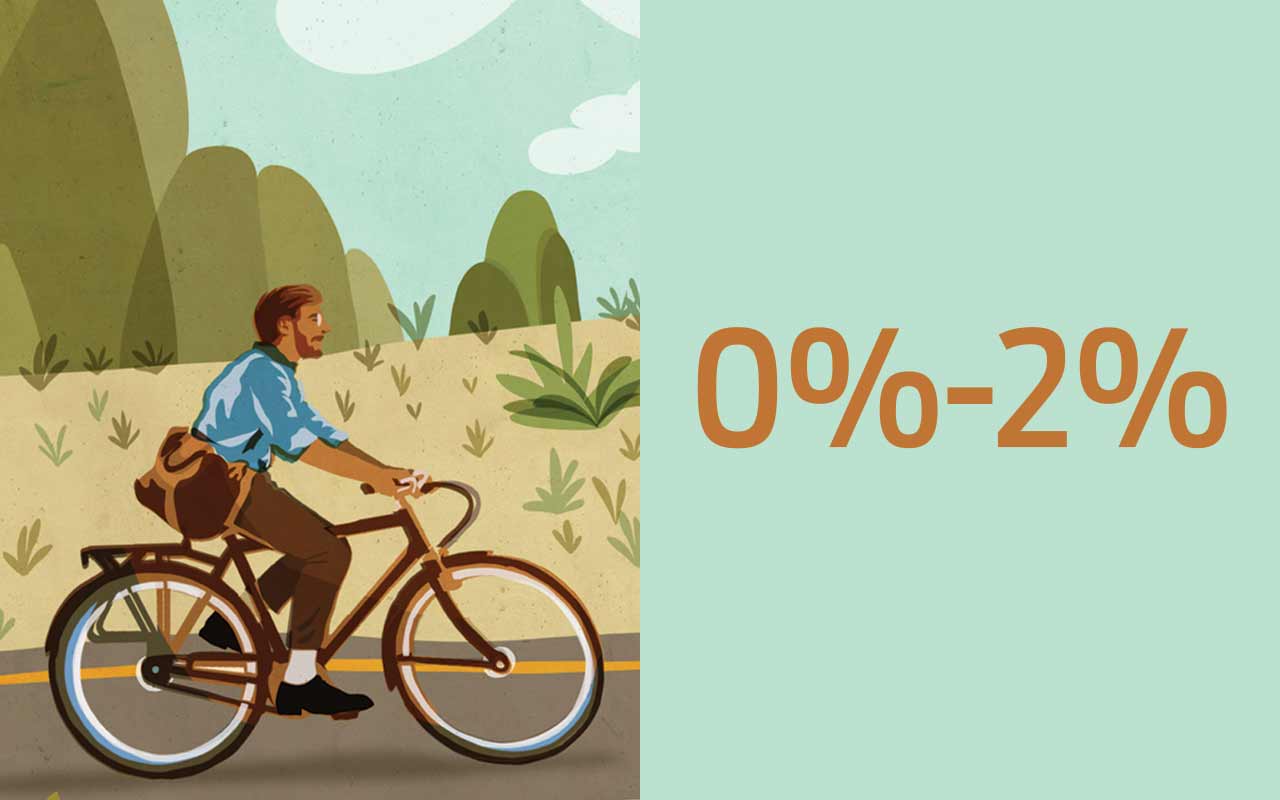
Short-Term Accounts
Yields on short-term, fixed-income accounts and securities follow the Fed’s short-term interest rate. Now that the Fed has lowered that rate to zero to provide a monetary jolt to the system, yields available on CDs, bank savings and money market accounts are rapidly headed lower. But today, the focus for cash and short-term liquid assets is more on return of capital than return on capital.
- The risks: In many ways, the recent turmoil in financial markets recalls the acute distress of the financial crisis of 2008–09. The Fed has been working overtime to provide liquidity and keep markets functioning. But as in the last crisis, there are questions about whether uninsured money market mutual funds can maintain their $1-a-share value. Thus, explicit federal government guarantees, such as on government securities and FDIC-insured accounts and CDs, have become more valuable. Unfortunately, assuming a 2% inflation rate, cash held in your short-term accounts will lose purchasing power over time. But such is the reality of avoiding risk today with your cash reserves.
- How to invest: In an environment of severe economic and financial distress and uncertainty, think about safety, or insurance, rather than reaching for yield with your cash reserves and liquid assets. Federal government guarantees are particularly important. You can find relatively high rates offered online for savings accounts and CDs.
For instance, FDIC-insured CIT Bank offers 1.75% for online savings accounts, with a minimum account balance of $100. You can earn 1.85% on a one- or two-year CD, with a $500 minimum deposit, purchased online from Marcus by Goldman Sachs (you pick up little or no interest by going out longer in maturity due to the remarkably flat yield curve). BMO Harris Bank also offers 1.85% for either a one-year CD (compared with a national average of 0.46%) or a two-year CD, with a minimum balance of $5,000.
You can find safety and liquidity with very low volatility in iShares Short Treasury Bond (symbol SHV, $111, yield 0.19%). This exchange-traded fund’s Treasury holdings mature in less than one year—the bulk of them in 2020—and come with the full faith and credit of the U.S. government. You can also purchase T-bills directly from the federal government through www.treasurydirect.gov—though six- and 12-month T-bills currently yield only a miserly 0.16%.
Expect money market yields to head lower as the funds’ current holdings mature and proceeds are reinvested in lower-yielding paper. Vanguard Prime Money Market (VMMXX, 0.81%) charges a fee of only 0.16% but is not federally insured. If you feel safer with government securities, consider Vanguard Federal Money Market (VMFXX, 0.54%), charging 0.11%.
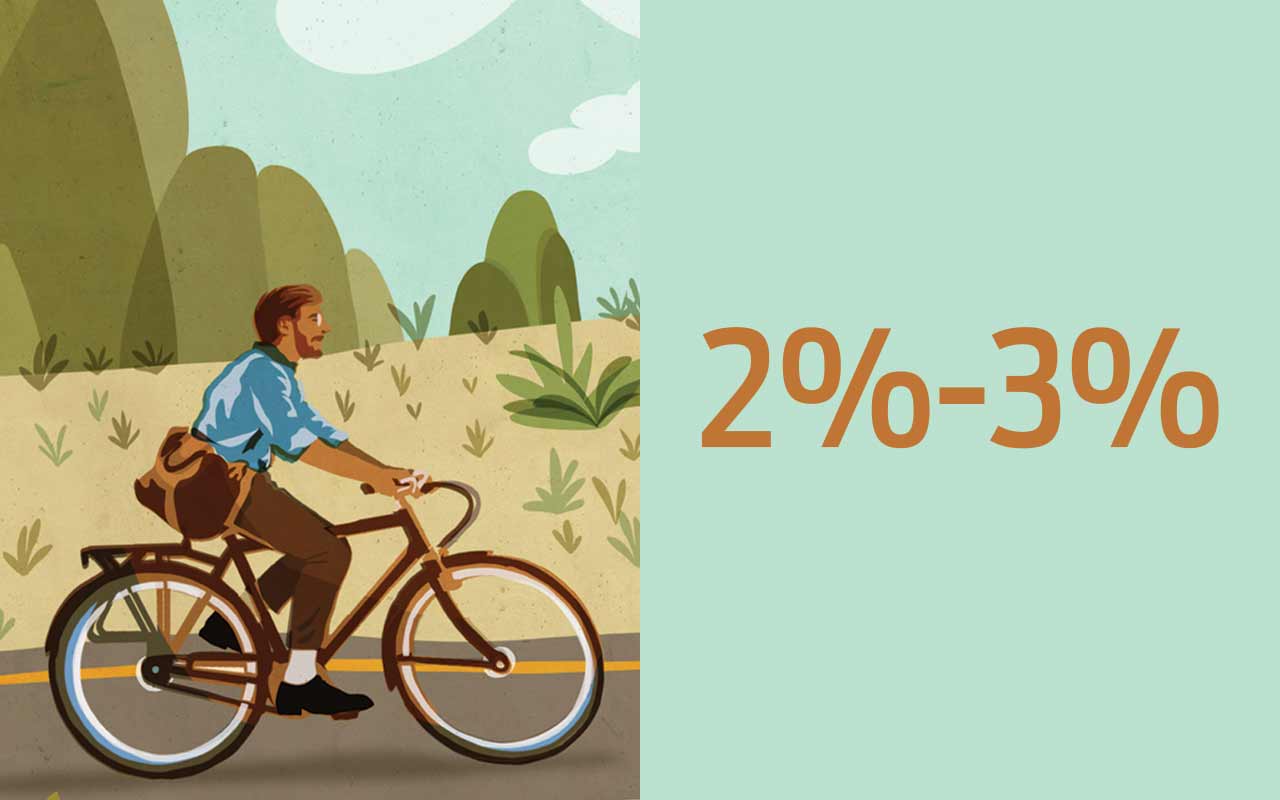
Municipal Bonds
The main appeal of muni bonds, which are IOUs issued by state and local governments in the U.S., is that interest income is free from federal taxes—and, for bonds issued in your state of residency, free from state and local taxes as well. During normal times, the $4 trillion muni market is a placid place, quite stable with only small price movements despite a relatively thinly traded market.
But these are far from normal times. When markets went crazy in the second half of March, investors suddenly yanked billions of dollars out of muni funds—even those invested in highly rated debt. Managers of muni bond funds were forced to sell holdings aggressively to meet shareholder redemptions. Muni ETFs began trading at unprecedented discounts to their net asset values, which reflect the value of their underlying assets, and some questioned whether ETFs were defective products.
Mariana Bush, research director at Wells Fargo Investment Institute, says there was no ETF malfunction, only a misconception. She explains that an ETF’s NAV is merely an estimate of underlying asset values, and that when markets go haywire and lose liquidity, those estimates become much less precise. During such periods of turmoil, “market price, which reflects actual investing and trading, is more accurate than NAV,” she says. Eventually, the Federal Reserve expanded its lending program to accept highly rated muni debt as collateral, which helped to bolster the liquidity and functioning of muni markets.
In the rush for safe havens, investors snapped up Treasuries but not munis. As a result, munis have become attractively priced relative to Treasuries, particularly on an after-tax basis. Mayukh Poddar, portfolio manager at Altfest Personal Wealth Management, says that in normal times, munis yield 80% to 85% of what equivalent-maturity Treasuries yield. Now munis are on offer for about 200%—and that’s before the tax benefit. For instance, five- and 10-year munis recently yielded 0.89% and 1.13%, respectively, compared with just 0.36% and 0.65% for Treasuries of the same maturity. Assuming a maximum federal tax rate of 40.8%, the tax-equivalent yield for that 1.13%, 10-year muni is 1.91%.
The risks: The longer the pandemic drags on and the deeper the recession, the more state and local governments will feel financial stress. Muni sectors that will be significantly impacted, at least temporarily, include transportation (for example, airports), senior-living facilities, universities and sports arenas. A large separate issue, notes Jeff Porter, chief investment officer at Sullivan Bruyette Speros & Blayney, is that declining and rock-bottom interest rates in effect sharply increase liabilities of state and local pension funds, which were already struggling to meet investment-return requirements. The pension shortfall can lead to credit-rating cuts—and higher taxes for residents to fill the pension gap.
How to invest: National muni funds provide investors with well-diversified baskets of state and local credits from around the country. Fidelity Intermediate Municipal Income (FLTMX, 1.75%) is a member of the Kiplinger 25, the list of our favorite no-load funds. Adjusted for the maximum federal tax rate, the fund’s tax-equivalent yield is 3.0%. Nearly 90% of the fund’s assets are in muni bonds rated A or higher. The largest sector, at last reading, was health care; the largest state exposure in the portfolio was Texas.
Vanguard High-Yield Tax-Exempt (VWAHX, 3.21%) is a bit of a misnomer. Only 15% of this actively managed fund’s holdings are rated below investment grade; the higher yield (5.4% on a tax-equivalent basis) is due more to its allocation to long-term muni bonds. The fund’s average duration is 6.2. Aided by a low fee (0.17%), the fund has outrun a peer group of national long muni bonds by about 0.7% annualized over trailing three-, five- and 10-year time periods.
For Porter, a go-to muni fund is Vanguard Intermediate-Term Tax-Exempt Bond (VWITX, 2.03%), which has a nice habit of outperforming most actively managed muni-bond funds in most years, in part due to its low fees (0.17%). The fund has an average duration of 4.8, which implies a 4.8% loss, approximately, if interest rates were to rise by one percentage point, or a 4.8% gain if rates were to move one point in the other direction. About 70% of this index fund’s bond holdings are rated double-A or triple-A. The tax-equivalent yield is 3.4%.
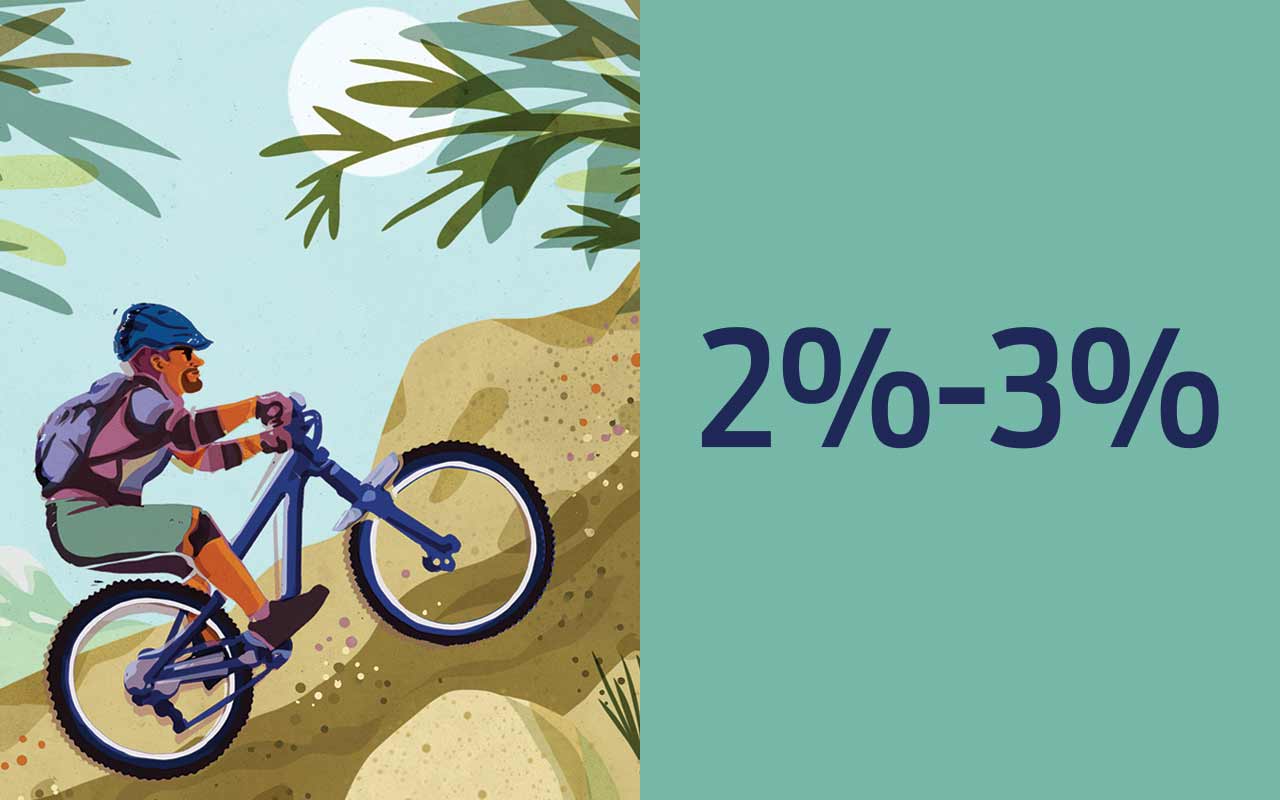
Investment-Grade Bonds
The core of a typical fixed-income portfolio is made up of investment-grade bonds issued by governments (for example, U.S. Treasuries), agencies (mortgage-backed securities, say) and corporations. In theory, these bonds should have low credit risk, but market action in recent weeks provides a textbook example of how the fortunes of investment-grade bonds can diverge in a time of crisis. Investors piled into the safe haven of U.S. Treasuries, driving up prices and pushing yields down to record-low levels. But investors exited corporate bonds, leading to a dramatic widening in the spread of their yields over Treasury yields that reflects a heightened perception of risk.
The risks: The past decade has seen enormous growth in issuance of U.S. corporate bonds with a triple-B rating, the lowest rung on the investment-grade ladder. These bonds now account for about half of the entire corporate investment-grade universe. Many triple-B bonds—especially in energy and other economy-sensitive sectors—have suffered sharp declines in value, now trade at high-yield levels and may be downgraded by the rating agencies to junk status.
How to invest: The first decision is whether to invest in an index fund or hire an active bond manager. In today’s low-yield environment, Kapyrin figures that it’s difficult for active managers to earn enough extra return to compensate for their higher fees. Thus, he prefers indexing with funds such as Vanguard Intermediate-Term Corporate Bond Index (VICSX, 3.3%), with a rock-bottom fee of 0.07%. For a broader approach, consider iShares Core U.S. Aggregate Bond (AGG, $117, 1.8%). This ETF tracks the Bloomberg Barclays U.S. Aggregate Bond index and has nearly one-half of its assets in U.S. Treasury and agency bonds, one-fourth in mortgage securities, and one-fourth in corporate bonds.
Dodge & Cox Income (DODIX, 2.9%) invests in a broader spectrum of investment-grade bonds and levies a reasonable fee of 0.42%. Compared with the Agg index, the fund has a lower duration, a smaller weighting in Treasuries and a higher allocation to corporate bonds, as well as loans that have been pooled and securitized.
Andy Kapyrin, co-head of investments at RegentAtlantic, says there’s a “hard line in the sand between investment grade and high yield that a lot of investors won’t cross.” Therefore, due to investment mandates, many fund managers and other professional investors may even be required to dump triple-B bonds that are downgraded to high-yield status.
Sullivan Bruyette CIO Porter makes a case for active managers, given today’s market dislocations, which favor nimble managers quick to spot emerging opportunities. One such manager is Jeffrey Gundlach, the mortgage-security maven at DoubleLine Total Return (DLTNX, 3.1%), another Kip 25 member. DoubleLine holds agency and non-agency securities and controls volatility in part by running a portfolio with just half the duration, on average, of the Bloomberg Barclays Agg index.
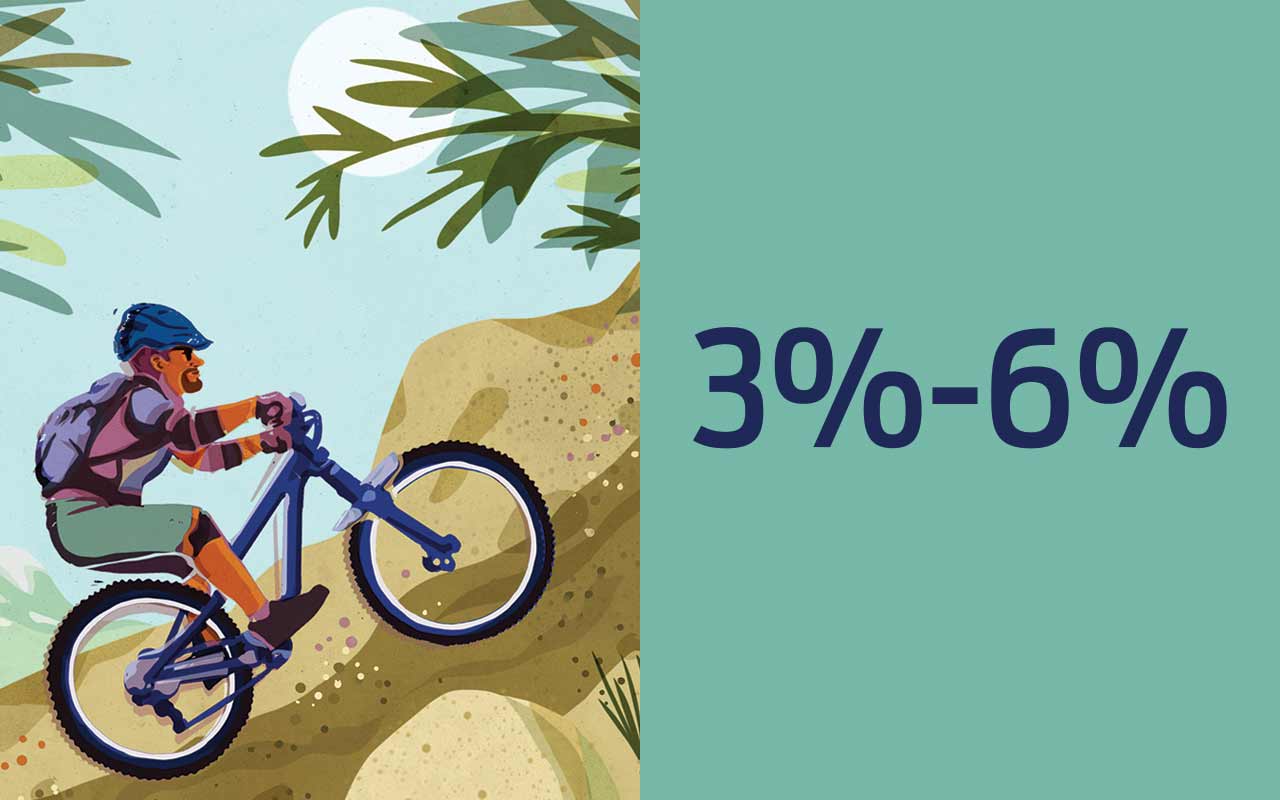
Real Estate Investment Trusts
REITs are designed to generate income for investors, as 90% of their taxable income must be distributed each year to shareholders. The creation of REITs effectively democratized real estate investing by providing individual investors with access to commercial-property projects, such as office and apartment buildings and shopping centers. You can view REITs as hybrid securities that offer bond-like yields and (in some cases) stock-like appreciation potential. REITs can be a compelling component of a diversified, long-term investment portfolio because they don’t move in perfect sync with either stocks or bonds. And due to their underlying property holdings, they provide some inflation protection in periods of rising prices.
The risks: As liquid, publicly traded securities, REITs can be volatile—unlike, for instance, the price movements of your less-liquid home. In recent months, REITs plunged in value, in line with common stocks. Amid the COVID-19 pandemic, containment efforts and social distancing, owners of shopping malls, cinemas, hotels and resorts, and even some office space, are suffering. Many REITs benefit from holding multiyear leases. That provides some clarity about expected cash flow, but REITs are not immune from the economic ravages of a recession.
How to invest: Realty Income Corp. (O, $52, 5.3%) owns 6,400 properties that it leases to large companies, such as Walgreens, Walmart, 7-Eleven and Fed-Ex. Realty, one of the Kiplinger Dividend 15, a list of our favorite dividend stocks, has a strong record of annually boosting dividends (which it pays monthly).
Vanguard Real Estate Index (VNQ, $76, 4.6%) provides low-cost entry to a diversified portfolio of about 180 REIT securities. The ETF’s largest holding is American Tower, owner and operator of wireless-communications infrastructure, followed by Prologis, a leading owner of supply-chain and logistics real estate, such as warehouses.
Even prior to the pandemic, shopping-mall operators were being squeezed by the relentless rise of Amazon and other online-shopping websites. Although mall owners are suffering, many other REIT sectors, including self-storage facilities, rental housing, health care and technology infrastructure, are flourishing.
John Buckingham, portfolio manager at Kovitz Investment Group and editor of The Prudent Speculator, hunts for REITs that benefit from industry tailwinds. Two of his favorites are in health care, where demand is growing in response to our aging society, and in technology. Physicians Realty Trust (DOC, $16, 5.8%) develops, owns and operates health care buildings that are leased to doctors, hospitals and other health care providers. Digital Realty Trust (DLR, $149, 3.0%) owns and operates data centers around the world, which benefit from the global surge in demand for information storage and video streaming. Its yield is on the low end for REITs, but the business is growing and dividends have compounded at a nearly 6% annualized rate over the past five years.
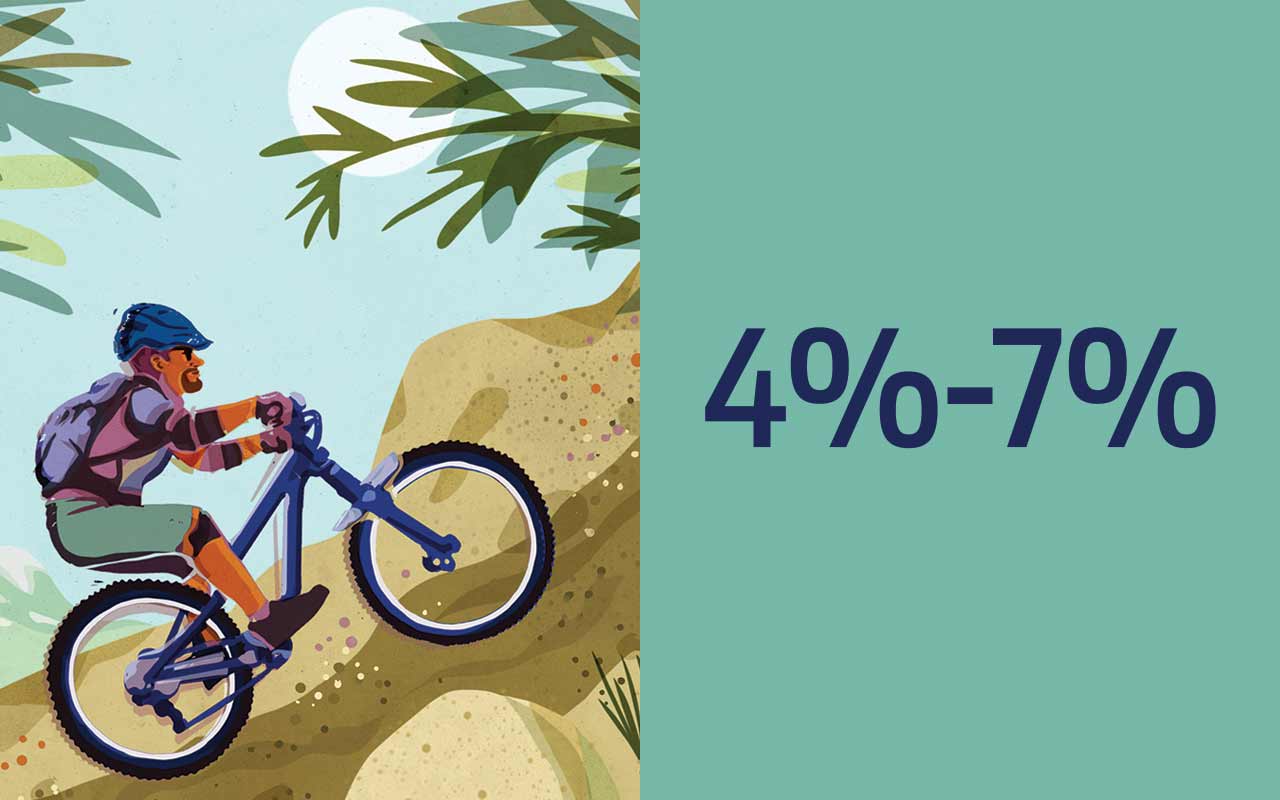
Dividend Stocks
Stocks that pay dividends can be an important income component of a diversified portfolio. Unlike fixed-income investments, many dividend-paying corporations raise their distributions each year, which provides investors with inflation protection. Preferred stocks are a kind of hybrid—the dividends they issue are fixed, akin to senior fixed-rate debt, and take priority over dividend payments to the same issuer’s common-stock shareholders. Bradford Coyle, executive managing director of Steward Partners/Raymond James, argues that the bear market has created fine opportunities for equity-income investors, with high-quality stocks yielding more than investment-grade bonds and selling at bargain prices. “These are the periods of time to plant seeds in high-quality companies trading at substantial discounts compared with what was available just weeks ago,” he says.
The risks: The deep recession will play havoc with many companies’ dividend plans, forcing some to cut, suspend or even eliminate dividend payments. Goldman Sachs projects that dividend payments for companies in Standard & Poor’s 500-stock index, up 9% in the first quarter of 2020, will plummet 38% from April to December 2020. An expanding list of companies, including Occidental Petroleum, Ford Motor and Boeing, have already cut or suspended dividend payments.
How to invest: In a deep recession, it makes sense to look for high-quality companies with strong balance sheets, sufficient cash, low dividend-payout ratios (dividends divided by earnings), and an ability to keep paying and ideally increasing dividends during the downturn. “You want to ensure that you’re investing in businesses that can make it through to the other side and survive the chasm,” says Kovitz’s Buckingham.
Altfest’s Poddar thinks Verizon Communications (VZ, $58, 4.2%), a Kiplinger Dividend 15 stock, and AT&T (T, $31, 6.7%) are firms that can keep paying solid dividends through hard times. Particularly when more Americans are working from home these days, demand should remain robust for these firms’ telecom services, such as mobile telephony, internet and pay TV. If you like the stability of a utility, consider Dominion Energy (D, $82, 4.6%), a large power generator based in Richmond, Va.
Health care companies also have solid defensive characteristics that come with some growth potential, says Poddar. You can find attractive yields from pharma giants Pfizer (PFE, $37, 4.1%) and AbbVie (ABBV, $83, 5.7%), a spinoff from Abbott Labs that recently acquired Allergan. AbbVie’s top drug is Humira, a blockbuster prescribed for arthritis and a host of other ailments; AbbVie, too, is a Kiplinger Dividend 15 member.
Banks came into this crisis having passed stress tests and with much stronger balance sheets than they had in 2008, during the financial crisis. Find respectable yields at JPMorgan Chase (JPM, $95, 3.8%), the largest U.S. bank, measured by assets, and Wells Fargo (WFC, $28, 7.2%). One potential risk is that government regulators could ask banks to suspend dividend payments (which happened in 2008) to preserve capital for the sake of supporting the real economy; several have suspended share-buyback plans.
Most preferred stocks are in the financial-services industry. With fixed dividends, they are a lower-risk way to invest in bank stocks because they stand higher on the capital-structure ladder and are less likely to suffer dividend cuts than common stocks. IShares Preferred and Income Securities (PFF, $34, 4.5%), an ETF with a 0.46% expense ratio, holds nearly 500 preferred stocks, including issues from Wells Fargo and Bank of America.
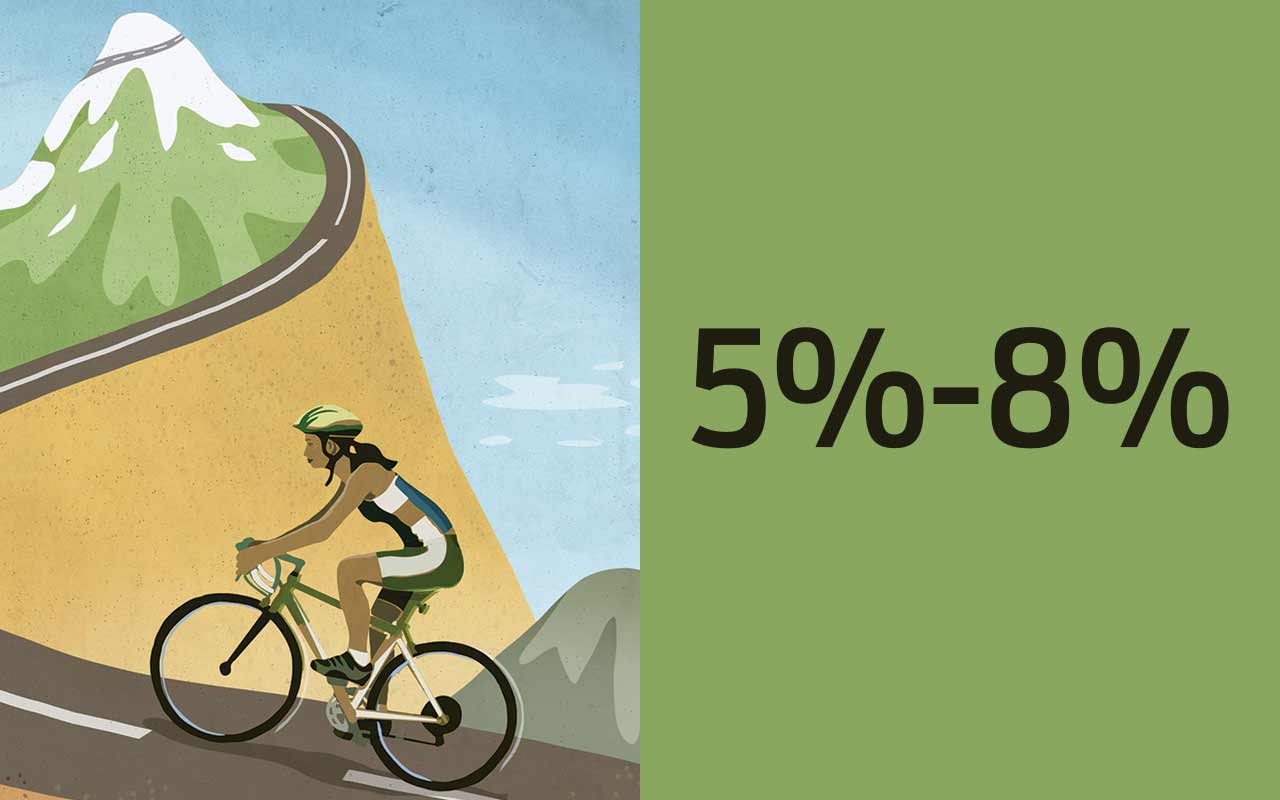
Closed-End Funds
Closed-end funds sell a set number of shares through an initial public offering and invest the money in stocks, bonds, loans, MLPs and other types of securities. Traded on an exchange, the fund’s market price, which reflects investor demand, can veer widely from the fund’s underlying NAV and trade at a discount or premium.
Most closed-end funds use leverage, or borrowed money, which can swell returns in bull markets but deflate them in bearish times. The funds’ volatility in recent weeks has been remarkable. Wells Fargo’s Bush says that before the coronavirus began infecting U.S. financial markets, the average closed-end fund traded at a slim 3% discount to NAV; by mid March, discounts were well over 20% for the first time since the financial crisis, with the average fund’s price off 40%.
The risks: The use of borrowed funds to buy portfolio assets magnifies the decline in NAV of a closed-end fund relative to the overall market. If a fund’s NAV declines too much, driving its leverage ratio (borrowed funds as a percentage of assets) too high, then it will run afoul of regulatory limits. Funds in this situation, which today include a number of MLP closed-end funds, will be forced to lighten their debt load by dumping assets and/or delaying or cutting dividends.
How to invest: John Cole Scott, chief investment officer of Closed-End Fund Advisors, is avoiding sectors such as MLPs, but he spots a good entry point in discounted funds with solid holdings that make prudent use of leverage. (It’s cheap to borrow now!) One he thinks fits the bill is EV Senior Floating Rate (EFR, $11, 7.5%), which trades at a 14% discount to NAV. The ETF is managed by Eaton Vance and has a relatively high 39% leverage ratio. The senior loans the fund holds are higher in a company’s capital structure than are high-yield issues, which implies a higher recovery rate for the fund if some loans go bad.
Scott’s reasoning for liking Flaherty & Crumrine Dynamic Preferred & Income (DFP, $23, 7.6%) is similar. Preferred stocks are senior to common stock on the capital structure pole. The leveraged fund trades at a small discount to NAV, and top holdings include preferred shares of Citigroup, Liberty Mutual and MetLife.
Patrick Galley, comanager of RiverNorth Opportunistic Municipal Income (RMI, $20, 5.4%), sees value in muni bonds, a large closed-end fund sector, given a pickup in yield compared with Treasuries. The managers can alternate between buying muni bonds or investing in muni closed-end funds; the fund is currently about 60%-40%, respectively. It trades at a 6% discount and employs a good deal of leverage.
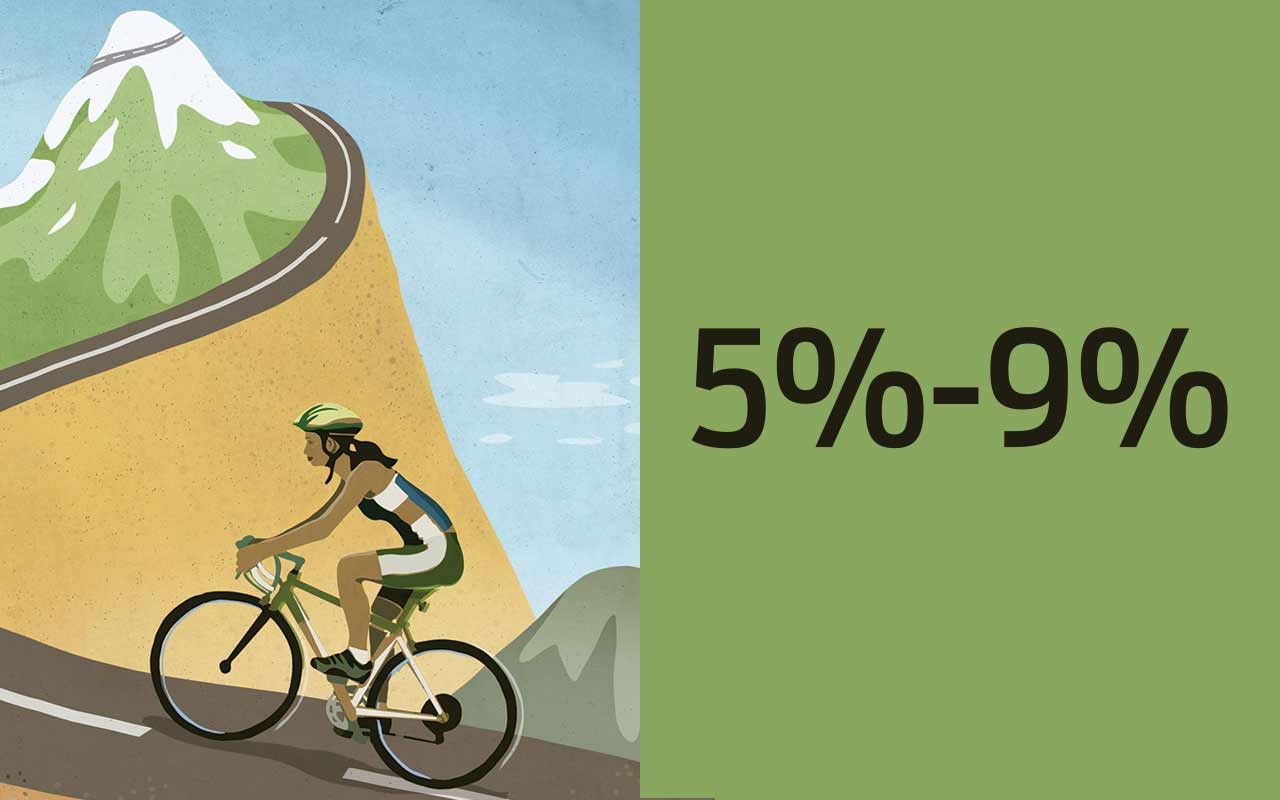
High-Yield Bonds
High-yield bonds (also known as junk bonds) are issued by sub-investment-grade companies. Investors receive high yields for taking the extra risk of lending to these lower-rated businesses. But as RegentAtlantic’s Kapyrin notes, until recently the market was more high risk than high yield, because actual yields were quite low. At the start of 2020, high-yield bonds yielded only 5%, and the spread over Treasury yields of similar maturity averaged only three to four percentage points.
Within weeks, yield credit spreads soared to 10 percentage points. Terri Spath, chief investment officer of Sierra Investment Management, notes that in the past, when credit spreads blew out to such levels, it heralded an attractive entry point in the high-yield bond market, implying strong future returns for brave investors. Spreads have since narrowed to between seven and eight points, but some good deals remain.
The risks: Defaults of high-yield issuers typically surge during recessions. Ray Kennedy, comanager of Hotchkis & Wiley High Yield Fund, expects the default rate to zoom from a low 2.5% in 2019 to 8%. The energy sector, which has a high weight in the junk-bond market, has been crushed by cratering oil prices; the gap in yields is nearly 20 points over Treasuries, reflecting the risk. The hotel, cruise-line and gaming sectors are also under severe stress. But keep in mind that high yields are supposed to compensate for the risk of rising defaults.
How to invest: If indexing is your preference, consider SPDR Bloomberg Barclays High Yield Bond (JNK, $100, 7.4%), an ETF that comes with a relatively modest annual fee of 0.40%.
Vanguard High-Yield Corporate (VWEHX, 6.5%), a Kip 25 fund, also tilts away from “junkier” junk, charges a low fee of 0.23% and has held up relatively well in this year’s market carnage. This is an actively managed fund, with Wellington Management as the sub-adviser. Most of the bonds in the portfolio of Osterweis Strategic Income (OSTIX, 6.5%) mature within three years, which explains why its average bond duration of 1.2 is less than half that of the index and its volatility is relatively low. Lead manager Carl Kaufman entered 2020 in a defensive posture, with a big cash hoard, but is now playing offense.
Many experts, such as Alex Seleznev, portfolio strategist at Councilor, Buchanan & Mitchell, prefer active managers for high-yield bonds—particularly during times of market stress, when seasoned investors can sift through the wreckage to find pearls. Seleznev likes PGIM High Yield (PHYZX, 9.4%), which invests mostly in higher-rated junk (that is, bonds rated double-B and B) and has consistently generated higher risk-adjusted returns than its underlying junk-bond index.
Profit and prosper with the best of Kiplinger's advice on investing, taxes, retirement, personal finance and much more. Delivered daily. Enter your email in the box and click Sign Me Up.
Andrew Tanzer is an editorial consultant and investment writer. After working as a journalist for 25 years at magazines that included Forbes and Kiplinger’s Personal Finance, he served as a senior research analyst and investment writer at a leading New York-based financial advisor. Andrew currently writes for several large hedge and mutual funds, private wealth advisors, and a major bank. He earned a BA in East Asian Studies from Wesleyan University, an MS in Journalism from the Columbia Graduate School of Journalism, and holds both CFA and CFP® designations.
-
 Dow Adds 1,206 Points to Top 50,000: Stock Market Today
Dow Adds 1,206 Points to Top 50,000: Stock Market TodayThe S&P 500 and Nasdaq also had strong finishes to a volatile week, with beaten-down tech stocks outperforming.
-
 Ask the Tax Editor: Federal Income Tax Deductions
Ask the Tax Editor: Federal Income Tax DeductionsAsk the Editor In this week's Ask the Editor Q&A, Joy Taylor answers questions on federal income tax deductions
-
 States With No-Fault Car Insurance Laws (and How No-Fault Car Insurance Works)
States With No-Fault Car Insurance Laws (and How No-Fault Car Insurance Works)A breakdown of the confusing rules around no-fault car insurance in every state where it exists.
-
 The New Fed Chair Was Announced: What You Need to Know
The New Fed Chair Was Announced: What You Need to KnowPresident Donald Trump announced Kevin Warsh as his selection for the next chair of the Federal Reserve, who will replace Jerome Powell.
-
 January Fed Meeting: Updates and Commentary
January Fed Meeting: Updates and CommentaryThe January Fed meeting marked the first central bank gathering of 2026, with Fed Chair Powell & Co. voting to keep interest rates unchanged.
-
 The December CPI Report Is Out. Here's What It Means for the Fed's Next Move
The December CPI Report Is Out. Here's What It Means for the Fed's Next MoveThe December CPI report came in lighter than expected, but housing costs remain an overhang.
-
 How Worried Should Investors Be About a Jerome Powell Investigation?
How Worried Should Investors Be About a Jerome Powell Investigation?The Justice Department served subpoenas on the Fed about a project to remodel the central bank's historic buildings.
-
 The December Jobs Report Is Out. Here's What It Means for the Next Fed Meeting
The December Jobs Report Is Out. Here's What It Means for the Next Fed MeetingThe December jobs report signaled a sluggish labor market, but it's not weak enough for the Fed to cut rates later this month.
-
 The November CPI Report Is Out. Here's What It Means for Rising Prices
The November CPI Report Is Out. Here's What It Means for Rising PricesThe November CPI report came in lighter than expected, but the delayed data give an incomplete picture of inflation, say economists.
-
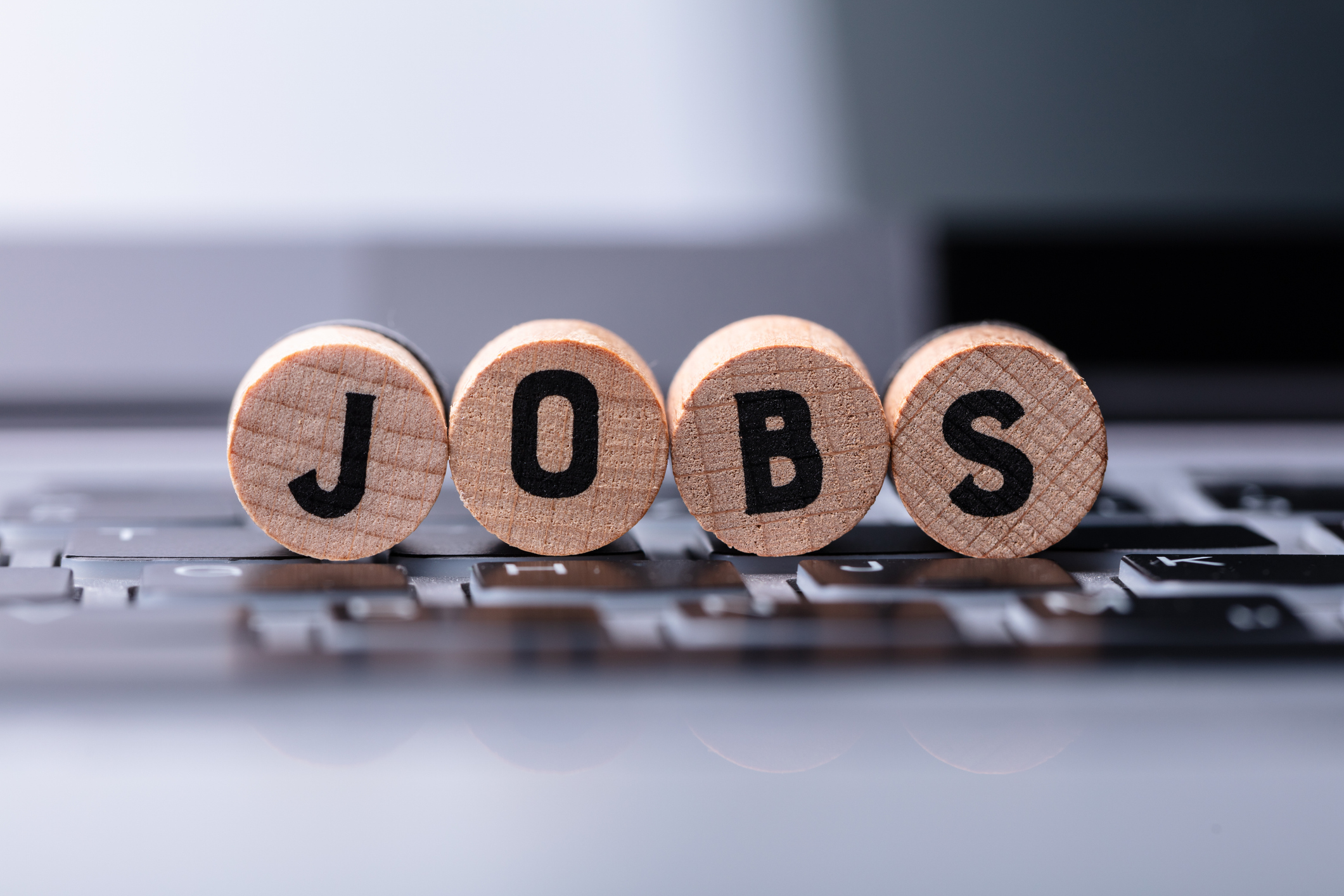 The Delayed November Jobs Report Is Out. Here's What It Means for the Fed and Rate Cuts
The Delayed November Jobs Report Is Out. Here's What It Means for the Fed and Rate CutsThe November jobs report came in higher than expected, although it still shows plenty of signs of weakness in the labor market.
-
 December Fed Meeting: Updates and Commentary
December Fed Meeting: Updates and CommentaryThe December Fed meeting is one of the last key economic events of 2025, with Wall Street closely watching what Chair Powell & Co. will do about interest rates.
